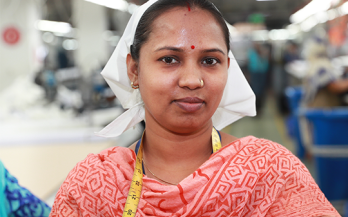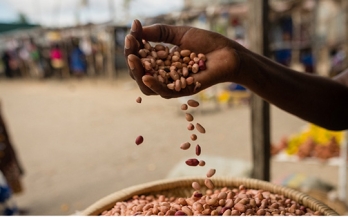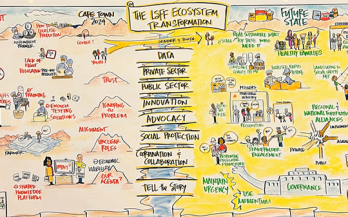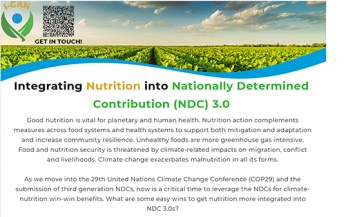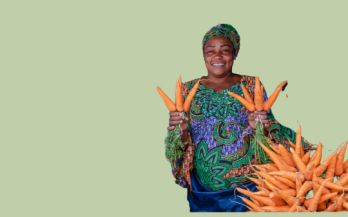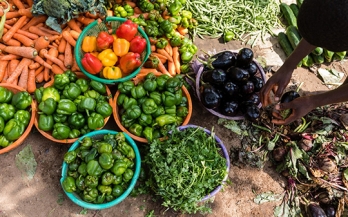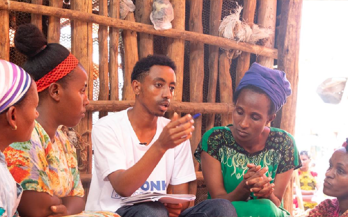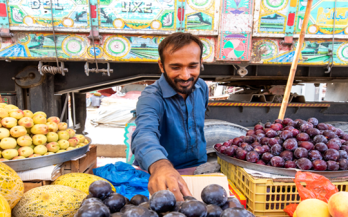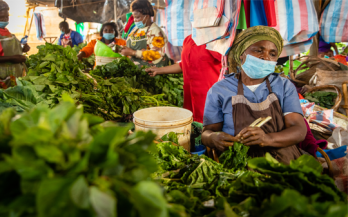This report presents objective findings on the current levels of nutrition integration in international instruments and guidelines, and national legislations, regulations and procedures. Nutrition is only integrated in a few examples. Many laws, instruments and codes were developed before worker malnutrition was as prominent an issue and before newer scientific evidence emerged linking worker performance to improved nutrition. This new context, married with the evidence in this report, highlights the enormous opportunity presented to future labour standard setting for employees and employers.
Political economy dynamics—that is, conflicts and trade-offs across different interest groups that play an important role in the food system—permeate many decisions about food systems policy and implementation. Development practitioners working in the food systems space—inclusive of agriculture, nutrition, and environment—need to be aware of these dynamics to be able to support policy advocacy, development, and implementation.
To assist in anticipating policy bottlenecks to food systems transformation, a toolkit was developed to examine six main domains within national policy systems. The six domains are: policy stability and inclusionary decision-making, stakeholder preferences, multi-sectoral coordination, multi-level coordination, financing, and administrative capacities.
Deficiencies in essential vitamins and minerals (micronutrients) cause devastating damage, particularly for children and women of reproductive age, resulting in increased risks of death, disabilities, more severe and longer-lasting illness, and compromised cognitive and physical development and performance and productivity of people and countries.
Good nutrition is vital for planetary and human health. Nutrition action complements measures across food systems and health systems to support both mitigation and adaptation and increase community resilience. Unhealthy foods are more greenhouse gas intensive. Food and nutrition security is threatened by climate-related impacts on migration, conflict and livelihoods. Climate change exacerbates malnutrition in all its forms.
The Initiative on Climate Action and Nutrition (I-CAN) presents a new report that analyses the intersection of biodiversity and nutrition, "Biodiversity and Nutrition Synergies: Evaluating National Biodiversity Strategies and Actions Plans for Integration." The report offers a comprehensive analysis of 192 National Biodiversity Strategies and Action Plans (NBSAPs), revealing the current state of nutrition integration in biodiversity policies worldwide.
This convening paper summarises the contents and outcomes of a meeting series jointly organised by the Deutsche Gesellschaft für Internationale Zusammenarbeit (GIZ) and the Global Alliance for Improved Nutrition (GAIN). The initiative aimed to foster exchange between policy advisors from both organisations who provide policy advice to governments on topics related to food systems transformation and governance.
The FTF EatSafe activity sought to improve food safety in traditional markets, adopting a systems approach and a focus on consumer demand. Traditional markets in LMICs are complex spaces at the core of food systems. Traditionally neglected, they are now recognized as key food environments where most people in LMICs procure their food, and where consumer demand meets supply chains.
Feed the Future's Evidence and Action Towards Safe Nutritious Food (EatSafe) aimed to increase consumer demand for safe, nutritious foods in traditional food markets in Nigeria and Ethiopia. This document details recommended approaches for implementing activities aimed at enhancing food safety in traditional markets through demand-driven behavior change, drawing on insights and lessons learned from EatSafe’s activities in these countries.
Improving food safety in low- and middle-income countries (LMICs), particularly in the traditional markets where most consumers shop, is crucial for advancing nutrition, health, and other development goals. Feed the Future’s (FTF) Evidence and Action Towards Safe, Nutritious Food (FTF EatSafe) activity aimed to stimulate and leverage consumer demand for safer food to drive improvements in food safety in traditional markets.
Feed the Future’s EatSafe: Evidence and Action Towards Safe, Nutritious Food (FTF EatSafe) aimed to boost consumer demand for safe, nutritious foods in traditional markets in low- and middle-income countries (LMICs), specifically Nigeria and Ethiopia. Utilizing a two-phased approach, FTF EatSafe's Phase I combined global evidence with local situational analyses to understand the context, and Phase II involved designing, testing, and implementing interventions to empower consumers.
Insights from formative research guided the development of interventions, including the Vendor Training Initiative in Hawassa, Ethiopia. The Vendor Training Initiative, piloted in the Aroge Gebeya market in Hawassa
